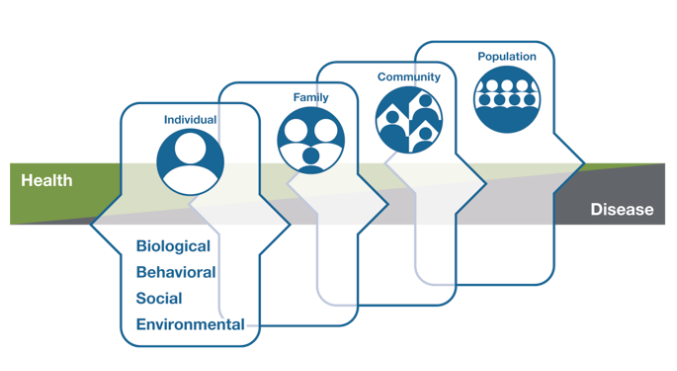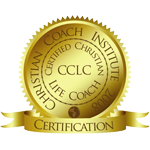 The National Center for Complementary and Integrative Health (NCCIH) is the Federal Government’s lead agency for scientific research on complementary and integrative health approaches. They are in the process of developing a research initiative on Whole Person Health.
The National Center for Complementary and Integrative Health (NCCIH) is the Federal Government’s lead agency for scientific research on complementary and integrative health approaches. They are in the process of developing a research initiative on Whole Person Health.
On Friday, May 12th, 2023 at 12 PM Eastern Time, their Advisory Council will be meeting (open to the public virtually) to approve a concept of the NCCIH research initiative. Read about the meeting here – Whole Person Health research concept meeting.
The NCCIH Whole Person Health Model does not include a spiritual domain, only these four domains: biological, behavioral, environmental and social. This is concerning as research demonstrates that numerous factors related to an individual’s spiritual wellbeing clearly affects one’s physical, emotional and mental health.
At the above link for the May 12, 2023 meeting, the public is invited to submit comments regarding this Whole Person Health research initiative. I have submitted the following as a comment. If you are also troubled by the fact that the NCCIH model of Whole Person Health does not include a spiritual domain, I encourage you to also submit a comment by May 27th, 2023. (visit the meeting link for instructions.)
Whole Person Health Research Concept at NCCIH – A Comment on Spiritual Health
This comment was provided to NCCIH regarding the concept for an initiative for Whole Person Health Research that will be presented to the NACCIH on May 12, 2023:
On a page of the NCCIH website that defines terms, your agency recognizes that one’s spirit is a part of one’s whole person with the following text: “The word holistic (sometimes spelled wholistic) often refers to the treatment of the whole person—body, mind, emotions, and spirit—to achieve wellness and good health.
Yet, the NCCIH framework for Whole Person Health (WPH) does not recognize the Spiritual domain of an individual.
If the concept for the WPH Research Initiative does not include the exploration of whether the spiritual domain should be included as part of the ‘whole person’ framework and considered just as important as the biological, behavioral, social and environmental domains, why is that?
A ‘white paper’ – Spirituality and Health in Our Federal Government – provides rationale, with referenced research, for including the spiritual domain in the NCCIH’s framework of WPH. This paper names several prestigious institutions of higher learning in the US that research this field and have documented the connection between spirituality and health. This research in the scientific literature has shown that incorporating spirituality into personal self-care and into the healthcare of patients can have positive effects on physical, emotional, mental, and psychological well-being.
Doctor Langevin’s blog post of 3/28/23 on a Whole Person Approach to Lift the Burden of Pain refers to the effectiveness of the VA’s Model of Whole Health, which has a spiritual dimension. Medical professionals who helped develop the DOD’s version of Whole Person Health, Total Force Fitness, deemed fit to include the spiritual domain in their framework. Both the VA’s and DOD’s frameworks are referenced by NCCIH as examples of systems that are using whole person health in health care.
This page of the NCCIH website states “In the context of whole person health, (research) topics should focus on exploring the fundamental science of interconnected systems…” Available research does demonstrate that the spiritual aspect of a person is a unique and important ‘system’ that is connected to an individual’s biological, psychological, emotional, and nervous systems.
Yet, the Executive Summary of the NCCIH Strategic Plan FY 2021–2025 Mapping a Pathway to Research on Whole Person Health and your website’s definition of Whole Person health excludes the spiritual domain stating that whole health has ‘multiple interconnected domains: biological, behavioral, social, and environmental.’
The slight mention of Spiritual Practices on the venn Diagram on Complementary Health Approaches, or the identification of Spirituality, Meaning and Purpose as one of 11 Factors or Determinants of Whole Person Health, does not properly represent the magnitude of the multitude of spiritual factors that impact positively on health. Spiritual practices, beliefs, attitudes, thinking patterns, and a relationship with a higher power tend to improve coping skills and social support, foster feelings of optimism and hope, promote healthy behavior, reduce feelings of depression and anxiety, and encourage a sense of relaxation. Spiritual factors like faith, hope, forgiveness, and prayer have a positive effect on health and healing. By alleviating stress and promoting healing, spirituality can positively influence one’s immune, cardiovascular, hormonal, and nervous systems.
In the 2022 NCCIH RFI to the public to identify determinants of Whole Person Health, 19% of respondents indicated that spirituality/religion was an important factor. This factor was the fourth in frequency mentioned even though respondents were asked to consider only the biological, behavioral, social, and environmental domains of health. This is another representation of the importance of adding a spiritual domain to your WPH model.
The spiritual nature of an individual and it’s numerous and various corresponding factors play a significant role in an individual’s health and wellbeing. NCIHH is the most appropriate governmental health agency to recognize spirituality’s significance and to include it prominently in its WPH framework and to recognize it as a complementary approach to health.
As included in the above mentioned ‘white paper’ I propose that the spiritual component/domain of health be incorporated into the NCCIH framework for whole persona health as a separate domain and into the 2021-2025 Strategic Plan. As a precursor to this, I recommend the NCCIH conduct a roundtable with a goal of advancing research in the area of spiritual wellbeing to better understanding its role in improving health. (Such a roundtable on emotional wellbeing was conducted in 2018.)
Thank you for your consideration.
Dale Fletcher, M.S.
Whole Person Health – Why a Spiritual Domain Should Be Included
The following is a concise rationale of why the NCCIH Model of Whole Person Health should include a Spiritual domain of Individual Health:
- Humans have an immaterial part of themselves that many recognize as a soul or spirit.
- The greatest majority of Americans (75%) attend to their vital spiritual needs by choosing to affiliate with a specific religion. 69% of this group identify as Christian. (Gallup 2021 Polls on Religion in America)
- The spirituality and health (S/R) research in the scientific literature has demonstrated a clear and strong relationship between many factors of S/R and well-being and health.
- Our federal health agencies exist to serve the various demographics of our nation’s citizens. Their research should focus on what matters most to our citizens.
I encourage you to attend the virtual meeting on May 12th to become informed and to submit a comment regarding this research initiative. The more this field of the connection between spirituality and health is researched, the clearer it will be documented that many spiritual factors positively affect health and wellbeing. This should result in more focus on this area, better whole person health care to people, a better informed public, and ultimately will lead to improved wellbeing of our nation’s citizens.








Dear Sirs:
The National Center for Complementary and Integrative Health (NCCIH) is in the process of developing a research initiative on Whole Person Health and is soliciting comments on that concept.
The current Whole Person Health model only contains four dimensions (biological, behavioral, environmental and social). It does not include a spiritual domain. Over the years of conducting seminars on physical and spiritual fitness with both lay persons and Catholic clergy, I can testify to there being a strong relationship.
Spirituality can mean many things but at its core, it is having a sense of connection to a greater power. Depending upon ones religious preferences it may be God, Allah, the Cosmos or nature. Regardless, I have found that sense of connection is related to one’s overall health.
I encourage the NCCIH Advisory Council to add spirituality to the Whole Person Health model.
Tom, I appreciate your comment and support on this important issue. ~ Dale